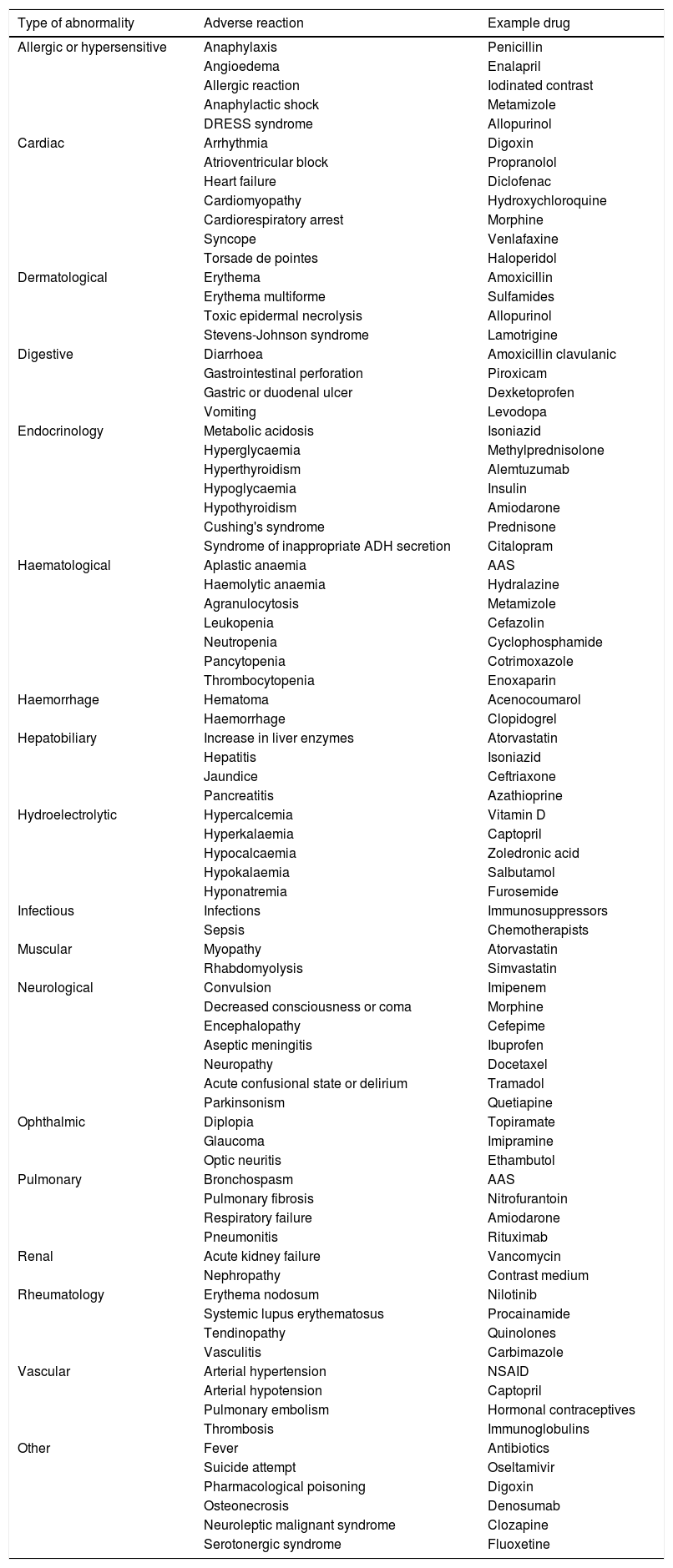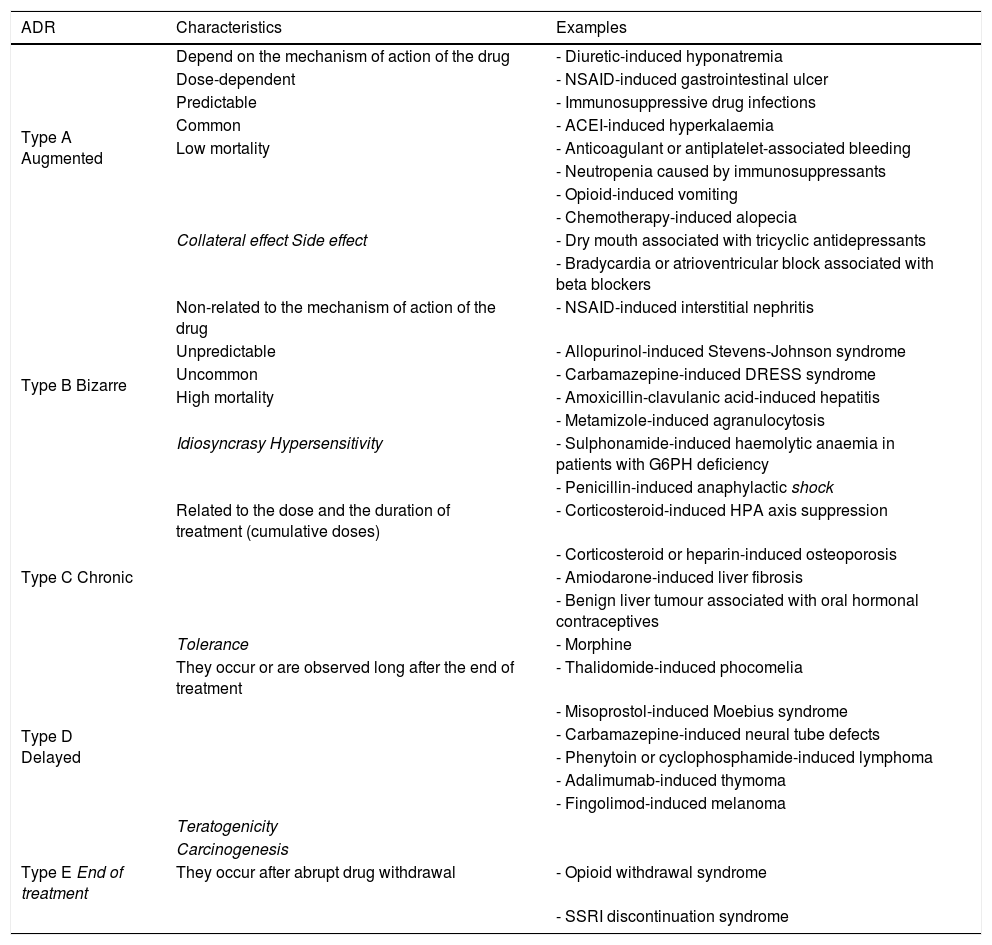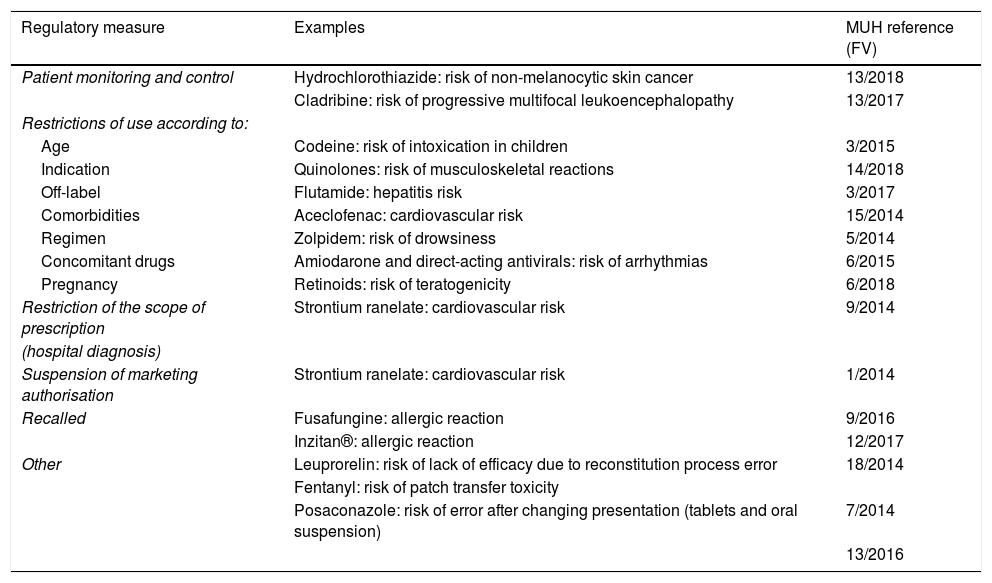An adverse drug reaction (ADR) is defined as a response to a medicinal product which is noxious and unintended. ADRs are an important cause of morbidity and mortality and increase health costs. The pharmacovigilance systems allow the identification and prevention of the risks associated with the drug use, especially of recently commercialized drugs; they detect signals from data of the global ADR register and also support decisions taken by regulatory agencies in different countries. Only few drugs are withdrawn from the market, mainly due to hepatotoxicity. Spontaneous notification of ADR is the cheapest, simplest and most used method to recognize new safety drug problems, being its main limitation the under-reporting. The future of pharmacovigilance and ADRs will include a higher involvement of patients, doctors, health authorities and pharmaceutical companies, and the use of new technologies.
Se define como reacción adversa a medicamentos (RAM) cualquier respuesta nociva y no intencionada a un medicamento. Las RAM constituyen una importante causa de morbi-mortalidad y de aumento de costes sanitarios. Los sistemas de farmacovigilancia permiten la identificación y prevención de los riesgos asociados al uso de medicamentos, sobre todo de los fármacos de reciente comercialización; detectan señales a partir de datos del registro mundial de RAM y además dan soporte a las decisiones adoptadas por las agencias reguladoras de diferentes países. Sólo una minoría de medicamentos comercializados se retiran del mercado, siendo la hepatotoxicidad la causa más frecuente. La notificación espontánea de RAM es el método más utilizado, barato y sencillo para reconocer nuevos problemas de seguridad, siendo su principal limitación la infranotificación. El futuro de la farmacovigilancia y de las RAM pasará por una mayor implicación de los pacientes, médicos, autoridades sanitarias y empresas farmacéuticas, y por el uso de las nuevas tecnologías.









